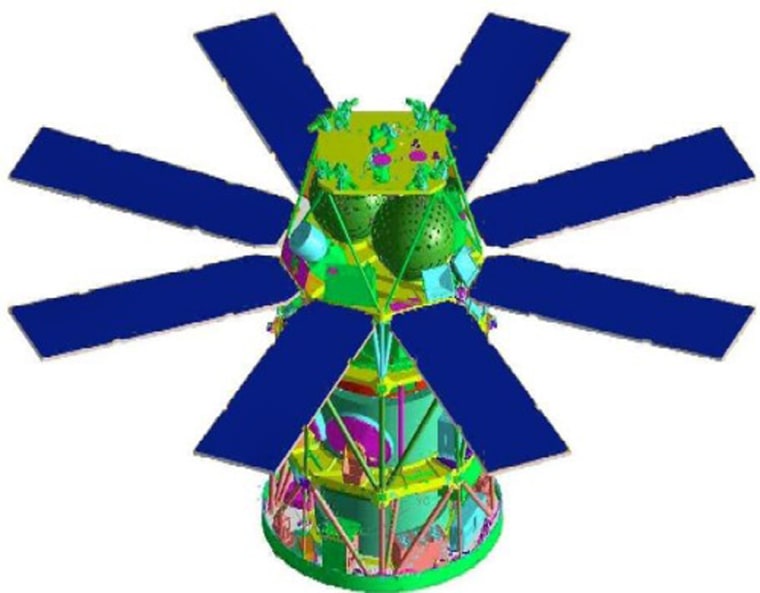Russia on Tuesday launched a satellite for Israel that the Israelis say will be used to spy on Iran’s nuclear program.
The Eros B satellite was launched from a mobile pad at the Svobodny Cosmodrome in the Far East, said Alexei Kuznetsov, a spokesman for the Russian military space forces.
About 20 minutes later, the satellite successfully reached orbit, Russian news agencies reported, citing the space forces’ press service. Israel’s Channel 10 TV reported that the launch was successful, but the satellite would not deploy its power panels for another day and a half.
The satellite is designed to spot objects on the ground as small as 27½ inches (70 centimeters), an Israeli defense official said. That level of resolution would allow Israel to gather information on Iran’s nuclear program and its long-range missiles, which are capable of striking Israel, he said.
“The most important thing in a satellite is its ability to photograph and its resolution,” the official said, speaking on condition of anonymity because of the sensitive subject matter. “This satellite has very high resolution, and (state-run) Israel Aircraft Industries has a great ability to process information that is relayed.”
It could take up to 10 days to see whether the images that are transmitted are sharp and clear, he said.
Russia, which has developed ties with Israel since the collapse of the Soviet Union, is also a major commercial partner of Tehran and is building an $800 million nuclear power station in Bushehr, southern Iran.
But it insists that the transfer of nuclear technology to Iran will not endanger the non-proliferation regime and has rejected U.S. calls to abandon the project as well as to halt military sales to Tehran. The Russian defense minister confirmed Monday that Moscow will go ahead and supply Iran with sophisticated anti-aircraft missiles.
Israel has for years regarded Iran as the primary threat to its survival, disputing Tehran’s claims that its nuclear program is peaceful. Iranian President Mahmoud Ahmadinejad has made this threat more tangible by repeatedly questioning Israel’s right to exist, most recently on Monday, when he said Israel was a “fake regime” that “cannot logically continue to live.”
An attempt to launch a military spy satellite, Amos 6, failed last year. Amos 5 is still in orbit, and Channel 10 reported Israel plans to launch another spy satellite next year.
Iran’s threatening comments about Israel had special resonance on Tuesday, which Israel marked as Holocaust remembrance day. Israeli Nobel peace laureate Shimon Peres, in Poland for observances, drew a parallel between Ahmadinejad and Adolf Hitler.
“We will haven’t recovered from this (the Holocaust) and I still hear these calls from Iran to destroy Israel,” Peres said.
Ahmadinejad’s words, he added, “are enough to put us all on alert.”
